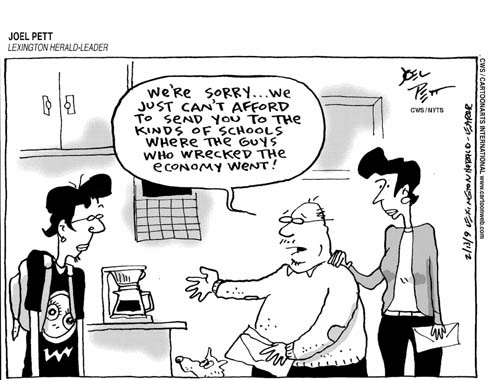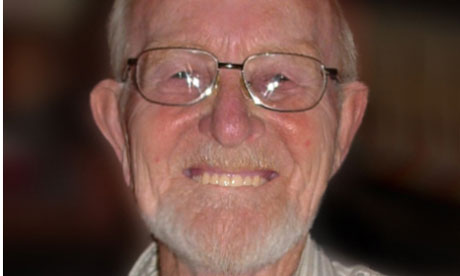Higher education is, increasingly, run as a business. Though of course, it is unique, with particular customers and particular needs.
In that respect at least it is like every other business.
But the point in this post is about how much money we should spend on educating people - specifically at University level. How much is enough?
I don't think there is much doubt that the UK needs to have the best educated and most entrepreneurial workforce it can possibly have. It needs people to go out into the world and create new things, ideas and to discover elemental new knowledge. Like sub-atomic particles.
I also think that we should encourage more and more pure and 'liberal' subjects ensuring that scientists are well funded and have the opportunity to play with their subject...and, alongside, give them courses in the philosophy of science.
Likewise any arts students should be free to explore and think (and drink, if they wish) and put on bad plays and pretend they understand postmodernism. And along the way, they should be compelled to do a practical course like...plumbing, painting, basic mechanical engineering. So at least they don't end up becoming political researchers with no more idea about hard work than a penguin has of spaceflight.
All that said, the following is not about denying Oxbridge resources, but rather a plea that all teaching and research should be well funded and that the paring of research budgets happening right now should be stopped; reversed and consigned to a footnote in history where future generations will say"You'll never guess what they nearly did! They nearly switched off the life support system of the knowledge economy! Phew!"
Here I've made some simple comparisons between a new
university and an elite institution. These are illustrative of the diversity of
the HE sector in England and are not intended to make any point about the
financial or other status of the institutions. The figures are from the
respective institutions annual report and accounts for 2009 and rounded.
The question is, which needs (more) Government funding? And, as they say in exams, explain your answer.
A new university
|
Jesus College Cambridge
|
||
Income
|
£168,500,000
|
Income
|
£11,363,000
|
Expenditure
|
£158,200,000
|
Expenditure
|
£10,300,000
|
No of students
|
27,000
|
No. of students
|
704
|
Income per student
|
£6,240
|
Income per student
|
£16,140
|
Expenditure per student
|
£5,860
|
Expenditure per student
|
£14,630
|
Balance sheet assets
|
£31,300,000
|
Balance sheet assets
|
£218,000,000
|
Assets per student
|
£1,160
|
Assets per student
|
£309,752
|





